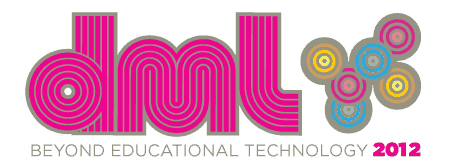DML: Case Study in Digital Media and Learning Partnerships: A Youth-Centered Design Framework in San Francisco
In San Francisco, a new initiative brings together some of the Bay Area’s most prominent institutions to re-envision the use of digital media in informal learning environments. As a local leader in narrowing the technology gap – particularly for the 42,000 middle and high-school youth within the city - the San Francisco Public Library (SFPL) has a core responsibility in providing free public access to learning opportunities and supporting our citizens’ exploration, critical assessment, development, and ownership of the digital landscape. With new or renovated neighborhood libraries citywide, SFPL is positioned as an anchor institution, upon which to build strong partnerships and create a larger learning network that leverages the strengths of many organizations serving youth and pioneering digital media efforts. To that end, the SFPL entered into partnership with three leading providers of creative educational programs for youth in the city: the Bay Area Video Coalition (BAVC), the California Academy of Sciences, and KQED to accomplish two overarching goals:
1) Develop a unified vision for incorporating participatory, project-based learning experiences in teen spaces, including public libraries; and
2) Develop a framework for incorporating content-based curriculum in a shared online platform between these partners and other bay area collaborators.
Each of the four partners brings a wide base of expertise, experience, and resources to the program, forming a strong basis for a citywide digital learning network. In addition, the project engages the help of a broad consortium of youth service providers and a team of youth leaders across the city. Education design consultants The Third Teacher of Cannon Design are facilitating the iterative program and space design process. Over a 12-month period – launched in October 2011 with a three day youth design camp – the partners will conduct a series of monthly pilot programs, prototype a variety of learning models within the city, and gather data from users and the community to inform a future vision and plan.
While the planning process and program goals hold potentially significant impact - supporting the attainment of multiple literacies in technology, media, environment, health, reading, and civic engagement –many fundamental assumptions may be challenged and questioned:
How can diverse stakeholders articulate a shared vision for digital media learning across multiple service organizations?
What is the best conceptual design for a ”learning lab” that works within a public library and other less formal learning spaces?
Can we build a solid framework for providing content and curriculum in a learning lab environment?
How can we formalize a city-wide Learning Network of youth service providers with an established work plan that is endorsed by city and educational leaders?
In this panel session, representatives from each partner organization will provide an overview of the following: goals of this initiative, planning strategies, partnership development models, lessons learned from prototyping and pilot efforts, and intermediate and anticipated long range project outcomes. Through discussion, presentation of project findings and results, and opportunities for audience interaction, the panel will explore the process and challenges.



